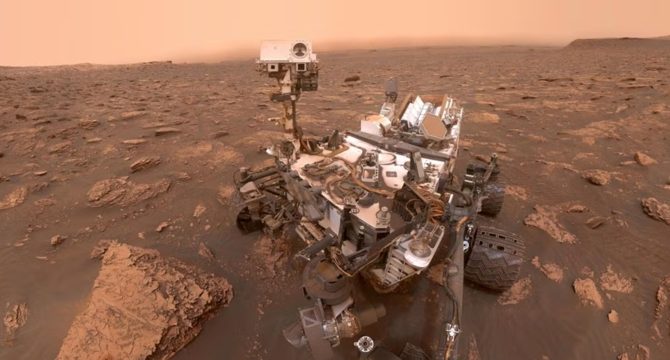Brighter Side of News
7d
37

Image Credit: Brighter Side of News
Toxic Martian dust could threaten astronaut health on future Mars missions
- Martian dust poses a serious health threat to astronauts on future Mars missions, with its toxic nature being a major concern.
- Deep space missions reveal various health risks like fluid shifts, muscle and bone loss, weakened immune systems, and increased infection risks for astronauts.
- Mars missions entail exposure to solar radiation, cosmic rays, and chemically active dust, unlike missions closer to Earth.
- Extended space stays lead to bone density loss, muscle atrophy, calcium level increase in urine, and heart muscle degradation.
- Spacesuits for Mars missions balance protection and flexibility, but pose risks like decompression sickness.
- Radiation exposure on Mars could result in brain tissue damage, cancer risk, cataracts, and pulmonary fibrosis.
- Mars dust, electrically charged and reactive, poses inhalation risks due to small particle size that can enter the bloodstream.
- Studies identify harmful components in Martian dust like iron oxides, silicates, toxic metals, and perchlorates that can lead to health issues.
- Inhaling Martian dust can cause lung scarring, similar to silicosis, and long-term health problems due to toxic components.
- Prevention strategies, such as suit designs, dust repelling technologies, and air quality monitors, are crucial for astronaut safety on Mars.
Read Full Article
2 Likes
For uninterrupted reading, download the app